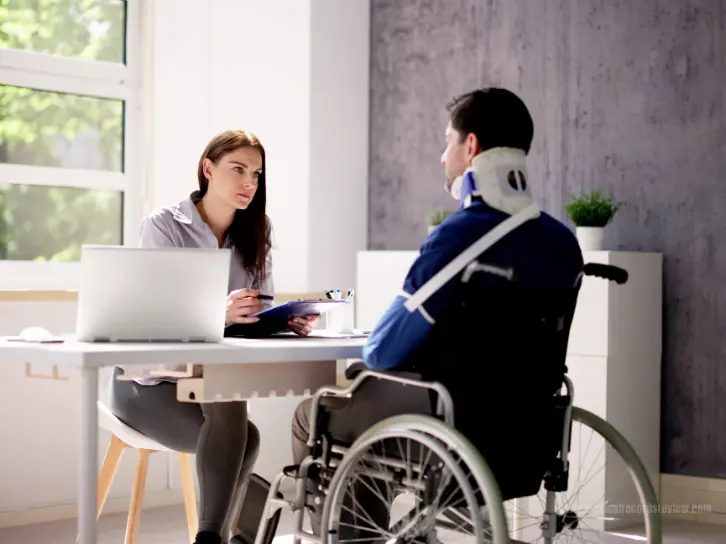Introduction: Understanding Negligence in Personal Injury Law
In most of the cases involving personal injuries in the United States, there are certain acts or omissions that can be classified as negligence. As a medical reviewing company working with various attorneys around the country, it’s essential to appreciate the nuances involved in the negligence aspects of the cases. This complete guide explains four components of negligence, how these components are relevant to the cases of personal injury, and how review of medical records contributes towards forming a legal strong case.
The Four Elements of Negligence Explained
1. Duty of Care
Definition and Legal Basis
Duty of care is one of the most basic principles when discussing negligence as a legal principle. Doing so requires that individuals or entities take care not to cause harm to others. This duty arises out of a number of things, which include statutes, common law and the expectations of people.
Examples in Different Contexts
· Healthcare: Doctors owe a duty of care to their patients to provide treatment that meets accepted medical standards.
· Road Users: It is the responsibility of motorists to ensure that they use their vehicles in a safe way and that they obey all the relevant laws. They should be able to drive along with proper consideration of the different road laws and regulations that govern them.
· Property Owners: The responsibility lies with both companies and homeowners to ensure the safety of guest while on the property’s.
Establishing Duty of Care in Personal Injury Cases
To prove negligence, the plaintiff must first demonstrate that the defendant owed them a duty of care. This often involves showing a relationship between the parties or circumstances that would reasonably create such a duty.
2. Breach of Duty
What Constitutes a Breach?
A breach occurs when the defendant fails to meet the standard of care expected in a given situation. This failure can be through action or inaction.
The “Reasonable Person” Standard
In determining whether a breach has occurred or not, courts often use the test of a reasonable person. A reasonable person is the hypothetical person who exercises the care, skill and judgment which is reasonable to expect in the given circumstances.
Examples of Breach in Various Scenarios
• Medical Malpractice: A surgical patient being left with the surgical instruments in his body due to surgeon negligence.
• Car Accidents: A person reading text messages whilst driving a vehicle resulting in the vehicle being in an accident.
• Slip and Fall: Store managers do not bother to mop floors which might have been wet or do not place appropriate signage.
3. Causation
Actual Cause (Cause-in-Fact)
Actual cause, also known as “but-for” causation, asks whether the plaintiff’s injury would have occurred “but for” the defendant’s actions or in-actions.
Proximate Cause (Legal Cause)
Proximate cause defines liability to those events that were probable and foreseeable. As a result, a defendant cannot be held liable for some very remote results of his actions.
Challenges in Proving Causation
Obtaining proof of causation is often difficult due to the multiplicity of factors or pre-existing diseases. In most circumstances, the burden of proof relies heavily upon medical records and their expert evaluation.
4. Damages
Types of Damages in Personal Injury Cases
· Economic Damages: These include the particular losses which have a definite monetary value, for instance; medical costs, loss of income, and damage to property.
· Non-Economic Damages: Basic factors which do not have a specific financial value including; bodily pains, psychological anguish, and a factor that limits one’s satisfactions in life.
· Punitive Damages: In certain cases of gross negligence, additional punitive damages are imposed in order to compensate the plaintiff and discourage the same tendency from the defendant in future.
Proving Damages Through Medical Records
Most often, the presence of medical records would assist in proving costs to the hilt. These records serve as conclusive proof of the availability of injuries, their respective treatment costs, and the scope of the prognosis.
The Role of Medical Records Review in Negligence Cases
Importance of Thorough Medical Records Analysis
Medical records are important for filing any personal injury lawsuits or claims. Such purposes as a thorough review and analysis of medical records can be executed for the following reasons:
· Establish the extent and nature of injuries
· Provide a timeline of events
· Identify pre-existing conditions and their impact
· Support or refute claims of causation
How Medical Records Review Companies Assist Attorneys
Because we focus on the practice of medical records review, our services are particularly useful for lawyers engaged in the representation of personal injury litigants. We provide:
· Review of medical records and providing medical expert opinions
· Locating pertinent medical including dependency evidences
· Maintained chronologies showing dates of treatment and medical results
· Reviews of gaps and omissions in the medical records
Latest Trends in Medical Records Review (2024)
The practice of medical records review is not static. The practices that can be observed gradually gaining ground include the following:
· Use of artificial intelligence technologies and machine learning algorithms in screening records
· Implementation of strong security controls to mitigate risks against stringent privacy regulations
· Inclusion of telemedicine records in the review process
· Stressing the need for interoperability standards to enable easy retrieval and examination of e-hospital records.
According to a recent survey by the American Bar Association, 78% of personal injury attorneys reported that expert medical records review significantly improved their case outcomes in 2023.
Case Studies: Negligence Elements in Action
Case Study 1: Medical Malpractice
Overview
A patient underwent routine surgery but experienced severe complications due to a retained surgical sponge.
Challenges
· Demonstrating that there was a failure on the part of the surgical staff to exercise an acceptable degree of skill
· Establishing a clear link between the retained sponge and the patient’s subsequent health issues
Solution
Our medical review experts conducted a thorough assessment of the operative and post-operative records and follow up visit records. Irregularities in sponge counting were noted and the health of the patient was found to deteriorate because of a foreign object that was left inside.
Case Study 2: Pharmaceutical Negligence
Overview
A patient suffered severe side effects from a medication due to a pharmacist’s dispensing error.
Challenges
· Determining whether the pharmacist breached their duty of care
· Differentiating between side effects caused by the error versus known medication risks
Solution
Our team has performed a thorough analysis of the prescription history of the patient, the dispensing treatments made and their medicinal follow ups after the treatments. In fact, there is no question that there was a break of duty because the dispensed and prescribed drugs were not the same.
Conclusion
To be effective in constructing strong personal injury cases negligence, all four elements of negligence must be understood. We have gotten involved in defending attorneys that need their cases won by becoming medical records review experts. It helps in this respect attaining the desired outcome and making sure that every element that is alleged in respect of negligence is considered and proved when the client is making an injury claim.
Attorneys can put their trust in us and feel assured when reviewing medical records for negligence litigation. Despite the changing tide of legal affairs, the combined employed of lawyers and specialists in medical records reviewing will forever be beneficial in seeking redress for the injured party!
Strengthen your personal injury claims with expert medical records review partner with MRR Health Tech for accurate case insights!



